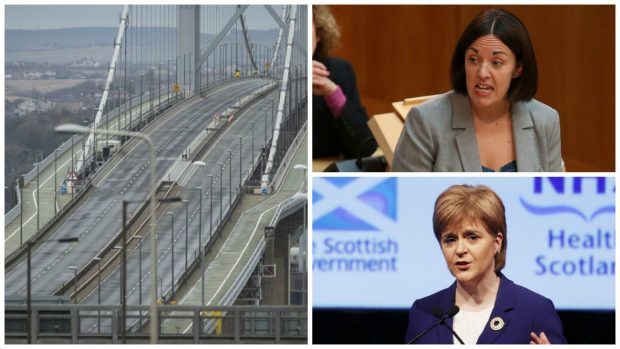Potholes, it is often said, are the first sign of a failed state.
Indeed, Harvard academic Robert Rotberg suggested that the more potholes a country’s roads have, the more the state will exemplify failure.
Unfortunately, Professor Rotberg gives no view on what it says for the quality of government when your premier piece of transport infrastructure is so decrepit and neglected it is unusable.
Suffice to assume, however, his view would not be favourable.
And such was the argument Kezia Dugdale made at FMQs yesterday.
It was subtle, but the message was clear – that any government that allows the Forth Road Bridge to close, is a failed government.
She had certainly prepared well in her bid to weave this argument into the minds of voters. The Scottish Labour leader did not need Harvard academics.
Waving bridge maintenance minutes with as much rhetorical flourish as is possible with such a document, Ms Dugdale pressed the First Minister on cuts to engineering budgets and missed opportunities.
Sturgeon was polished, as always, but not without cracks of her own.
The First Minister pointed to her government’s decision to build the new crossing on the Forth as evidence of how, contrary to Ms Dugdale’s view, her administration was succeeding.
But it was not easy.
She struggled to explain why, despite a commitment from Transport Minister Derek Mackay, lanes for the exclusive use of HGVs and buses had not yet been opened up to lighter transport vehicles used by small businesses.
And, as the debate wore on, much like a well-used tarmac, Mr Mackay – widely recognised as a usually safe pair of hands – looked increasingly uncomfortable.
He was a man who realised he better fix the bridge quickly so his government does not fall into the failed state narrative of Ms Dugdale.
Because he knows, as did many others in the chamber, that failed states tend to show little mercy to failed ministers.
